

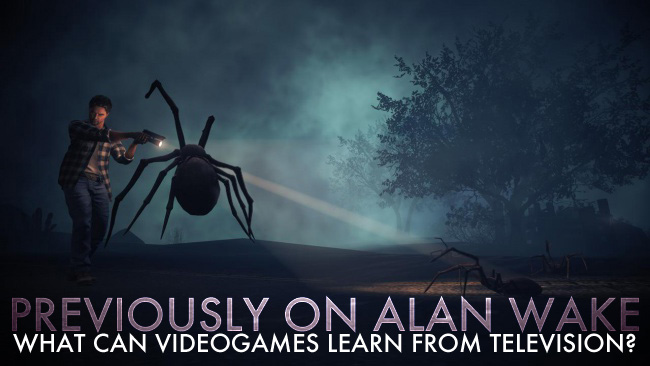
Welcome back to your regularly scheduled video game.
Although TV and video games seem to have little in common in terms of economics, distribution, or even narrative approaches, in some ways, video games can be seen to share a few loose structural qualities with television programs. For instance, one could always compare levels to episodes, however much of a leap that may be.
In the past few years, however, games have started to adopt more television tropes than ever. Before they abandoned the idea, Valve made the episodic approach famous when they promised the follow-ups to Half-Life 2 would be released as smaller episodic portions that would reduce development time and allow for faster output. Unfortunately, Valve’s ambitions ultimately made this approach impossible. Nonetheless, starting with the Sam and Max series, Telltale has been the most successful with episodic games. Since Sam and Max, Telltale has offered such storied franchises as Monkey Island, Back to the Future, and Jurassic Park as regular episodic releases culminating in seasons that can be packaged as boxed products for retail release.
In terms of aesthetics, games like 2008’s Alone in the Dark and 2010’s Alan Wake have literally structured their levels as episodes, even offering players recaps such as “Previously on Alan Wake” in order to remind them of their past exploits. Alone in the Dark goes so far as to allow players to fast-forward to different parts of the level, an element that may have more in common with video playback than television but which has become standard practice for anybody using a digital video recorder, like TiVo, to watch television programs.
In a time when mobile gaming is becoming the most popular way to experience interactive entertainment because of its pick-up-and-play nature, and a time when bite-sized games are more convenient than long, sprawling games for busy schedules, television-inspired games allow players to invest shorter amounts of time and return to the game days or even weeks later with the confidence they will be reminded of the important plot points up to the moment they left off.
The most recent games to adopt this interstitial strategy of recaps and foreshadows are Resident Evil: Revelations for the Nintendo 3DS and Asura’s Wrath for the Xbox 360 and PlayStation 3, both titles notably published by Capcom. Strangely, there seems to be little thematic reason for the TV tropes practiced in games like this. At least in Alan Wake the conceit makes sense because of the way the narrative world of Wake is interlaced with the television series Night Springs featured throughout the game. In fact, the most recent Alan Wake experience, Alan Wake’s American Nightmare structures its levels as literal episodes of the diegetically embedded, Twilight Zone-inspired series.
Noek Kirkpatrick, co-founder of the TV criticism website Monsters of Television and a media studies graduate student, recognizes these developments but wants to temper the comparisons.
“Television, while not unique in its use of episodic storytelling, tells on-going stories that span weeks, months, even years,” Kirkpatrick says. “Most video games that have some sort of narrative seem to me to be largely more self-contained, like movies. Even when there are sequels involved, it's often a new story following the same characters. And I think this is purposeful. Until recently, television wasn't really a legitimate medium (some people still think it's pretty base or crass), whereas film is a ‘classier’ medium, something video games may want to associate themselves with in an effort to gain legitimacy. Television, for what it's worth, does the same thing in a variety of ways.”
While Kirkpatrick is correct that the majority of video games do adopt the self-contained narrative structure of movies or novels, some game series feel like they have embraced the extended narrative worlds of television genres like soap operas. For instance, the storylines of long-running series like Tekken, Street Fighter, or Resident Evil all refuse closure even while each game attempts to find resolution. What results is a lengthy, convoluted plotline that rewards fans but seems impenetrable to anybody who wants to understand the history of the particular series. Of course, the lack of emphasis on story in most games tends to circumvent this problem. Still, the myths of series like these span decades and follow the same characters through cyclical catastrophe and emotional scenarios, yet like many television procedurals, each subsequent iteration feels self-contained even as it builds on the established and exhausting plotline. Yet perhaps we should look within individual games, rather than across countless sequels, for evidence of inspiration from television conventions.
While police procedurals do sometimes feature overarching narratives, they are primarily defined by individual cases isolated to each episode.The police procedural has been a popular genre in television since Dragnet in the early 1950s, but Law and Order is probably most emblematic of the genre. While police procedurals do sometimes feature overarching narratives, they are primarily defined by individual cases isolated to each episode. Rockstar’s L.A. Noire from 2011 shares many characteristics with this genre of television.
Split into dozens of seemingly unrelated cases, L.A. Noire structures its investigations like episodes of Law and Order or CSI. Each case is autonomous, and while there is a narrative thread that ties most of them together, they can just as easily be enjoyed on their own. The cases themselves are split into separate portions that somewhat recall the structure of a standard entry in a police procedural. Players are shown the crime as a detached viewer, then as agent Phelps, players visit the crime scene, interrogate witnesses, chase suspects, and ultimately charge somebody with the transgression. Part of the pleasure in L.A. Noire is getting to experience an interactive version of the kinds of procedural cop dramas many of us enjoy. While there are myriad criticisms to be made about the overall effectiveness of L.A. Noire’s approach, it provides a familiar format for players to follow and offers comparisons to the best of police procedurals.
Television scholar Raymond Williams has called “flow” one of television’s defining qualities. For Williams, flow is a way of describing the TV viewing experience that interlaces programs, commercials, previews, and news updates to create a sense of continual movement through the televisual space – a flow. For Williams, flow can be seen as the entire arrangement of a day’s programming, the material that surrounds and binds a program together, or the actual words and images in the program itself. As isolated products, there doesn’t seem to be a sense of flow in video games (although it would be interesting to see a case for it), but as television starts to be consumed less and less through broadcast or cable subscriptions and more as isolated visual texts outside of their original programming schedule, using flow to describe essential qualities of television starts to break down too. So other qualities of television have to be examined if the medium is to have any meaning going forward. Some such qualities might be described as genre conventions, tropes, production practices, and economics, although these too always seem to be shifting.
It is precisely in these genre conventions and tropes that video games are finding inspiration from television traditions.
“I don't think that anything is created in a vacuum,” Kirkpatrick says, “and there's bound to be an exchange of aesthetics and approaches between media. Certainly in cinematics and cutscenes, we see how the visual languages of film and television are utilized with in the video game space, but it's not like we're seeing many, if any, instances of video games using a 3- or 4-camera sitcom approach. Though that would be interesting!”
Perhaps video games will never be television, and that’s a good thing.What other unexamined qualities have video games borrowed from television? How does the space of the living room already act to imbricate the act of watching television and the act of playing games? As technologies, genres, and media continue to converge, is there a future where TV and digital games will continue to blend until it will be difficult to tell the two apart?
Perhaps video games will never be television, and that’s a good thing. Medium specificity allows us to appreciate what is unique and advantageous about all the media we encounter and incorporate into our lives. Yet I want to stress video games can learn some tricks from television about how to create, organize, and distribute content in more manageable sizes and how to craft narratives that allow for erratic play sessions that sometimes feature breaks of days, weeks or months.
Stay tuned.
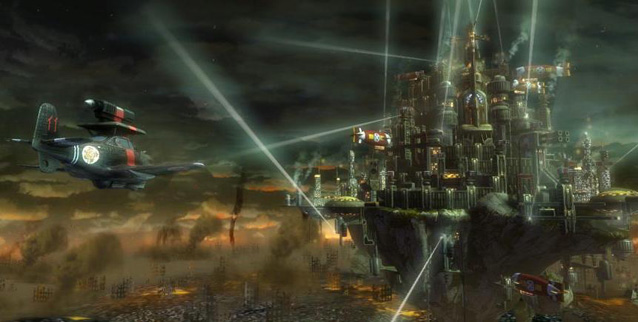

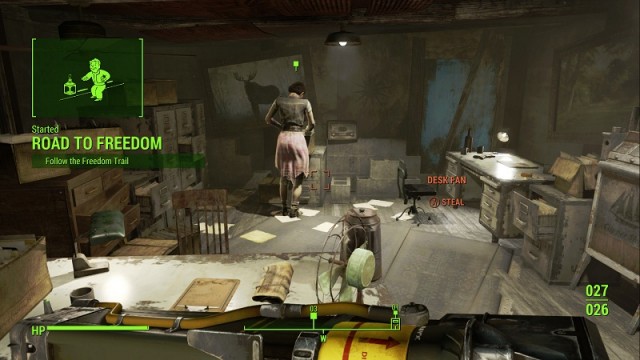
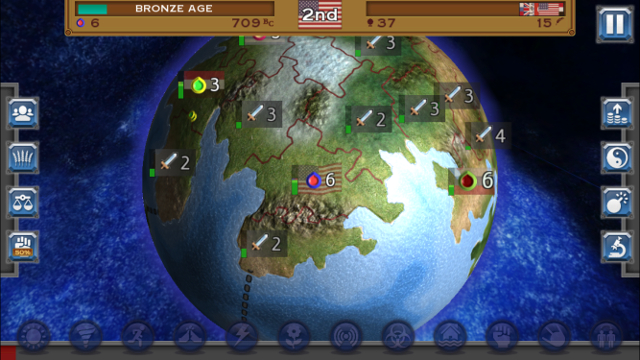
 Review: V-Moda Crossfade M-100 Headphones
Review: V-Moda Crossfade M-100 Headphones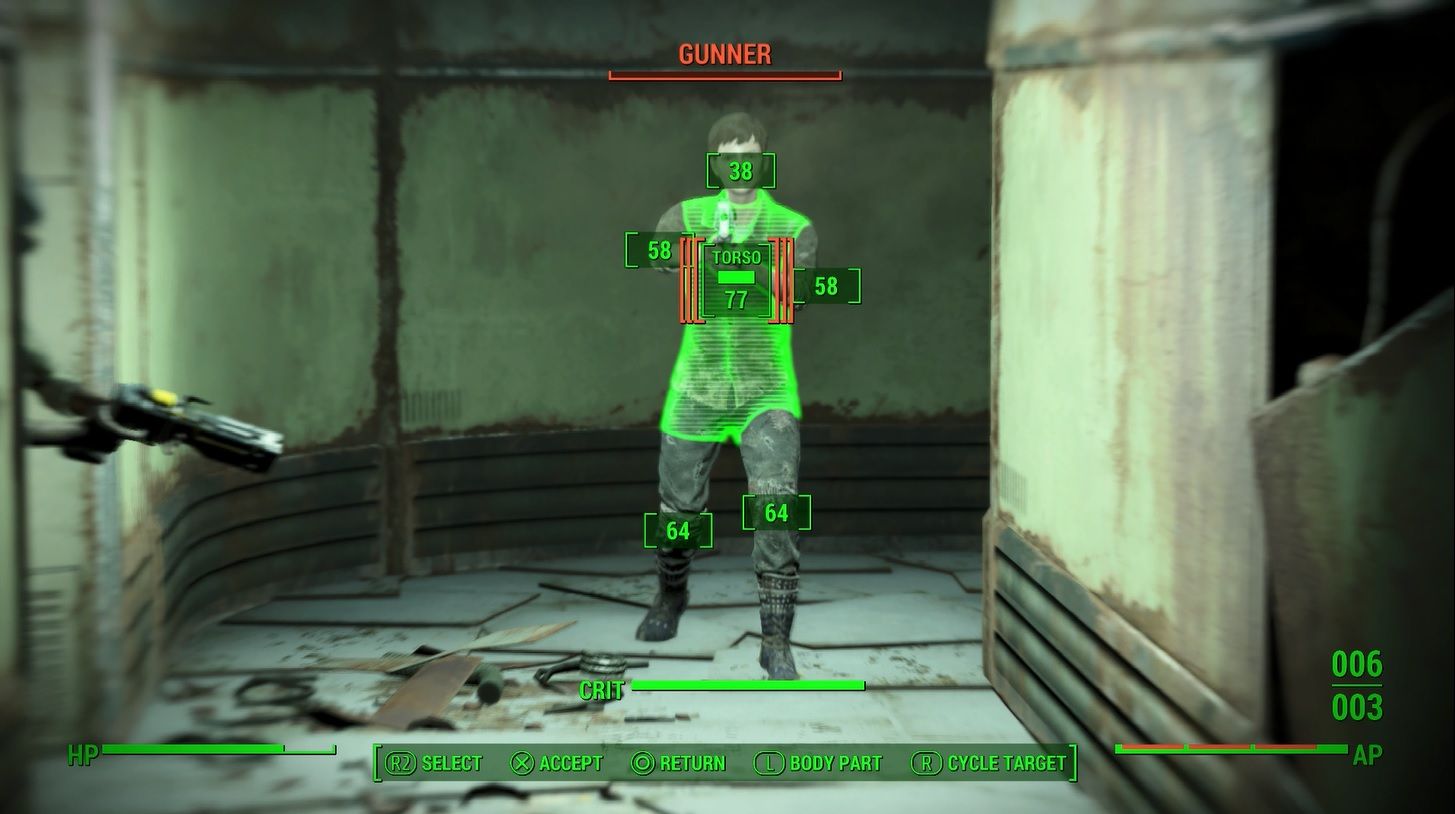 Fallout 4: Hunter/Hunted walkthrough
Fallout 4: Hunter/Hunted walkthrough Witcher 3: Hearts of Stone - How to Beat Evil's Soft First Touches Quest
Witcher 3: Hearts of Stone - How to Beat Evil's Soft First Touches Quest Prototype 2 Walkthrough
Prototype 2 Walkthrough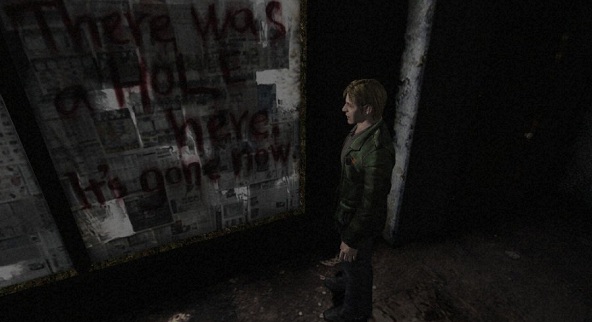 Silent Hill 2 HD Video Walkthrough
Silent Hill 2 HD Video Walkthrough